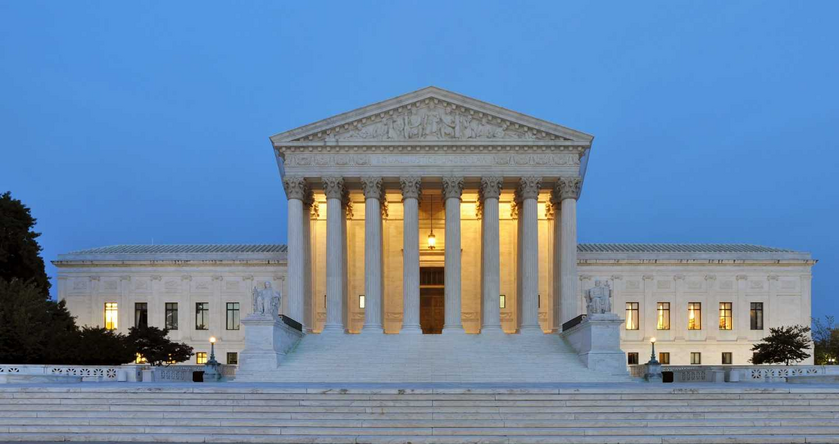In the past two months (late April to June 2025), the U.S. judicial system has delivered several significant rulings that bolster policies and priorities aligned with President Donald Trump’s agenda or resonate with his conservative base. From curbing judicial overreach to advancing parental rights, religious freedom, and Second Amendment protections, these Supreme Court and federal court decisions reflect the influence of Trump’s judicial appointees and his administration’s focus on executive power, cultural conservatism, and government efficiency. Notably, cases involving LGBTQ+ issues and parental rights have emerged as key battlegrounds, with rulings reinforcing traditional values and state authority. Below is a comprehensive list of major pro-Trump rulings, including those addressing LGBTQ+ policies, parental rights, and other conservative priorities, drawn from recent legal developments.
Trump v. CASA – Nationwide Injunctions (June 27, 2025)
Case Description: Challenged nationwide injunctions issued by lower courts blocking Trump’s executive order to restrict automatic birthright citizenship for children of non-citizens or undocumented immigrants.
Ruling: In a 6–3 decision, the Supreme Court ruled that federal district courts lack authority to issue universal (nationwide) injunctions against executive actions, partially staying injunctions from Maryland, Massachusetts, and Washington district courts. Justice Amy Coney Barrett authored the majority opinion, with liberal justices dissenting. The Court allowed the policy to proceed in jurisdictions not tied to named plaintiffs, remanding cases to lower courts to reassess injunction scope.
Impact: A major win for Trump, as it limits judicial ability to block his executive actions broadly, empowering policies like the birthright citizenship order and others (e.g., ending funding for sanctuary cities, suspending refugee resettlement, or banning federal funds for gender-affirming care). Trump called it a “monumental victory for the Constitution.”
Mahmoud v. Taylor – LGBTQ+ Books and Parental Rights (June 27, 2025)
Case Description: Christian and Muslim parents in Montgomery County, Maryland, sued to opt their children out of public school lessons featuring LGBTQ+-themed storybooks, arguing the lack of an opt-out violated their First Amendment religious freedom rights. The books included titles like Uncle Bobby’s Wedding and Pride Puppy, which the parents claimed promoted transgender ideology or same-sex relationships.
Ruling: In a 6–3 decision, the Supreme Court ruled that school officials cannot require children to participate in lessons with materials conflicting with their parents’ religious beliefs. Justice Samuel Alito authored the majority opinion, including images from the books in an appendix, emphasizing their content for young readers. Liberal justices, led by Justice Sonia Sotomayor, dissented, warning of “chaos” for public schools.
Impact: A significant victory for parental rights and religious freedom, aligning with Trump’s campaign promises to restore parental control over education. The ruling supports conservative efforts to limit exposure to LGBTQ+ content in schools and may lead to broader opt-out demands for other curricula (e.g., evolution or sex education). Trump celebrated it as a “tremendous victory for parents.”
Free Speech Coalition v. Paxton – Texas Age-Verification Law (June 27, 2025)
Case Description: The Free Speech Coalition challenged a Texas law requiring age verification for accessing online pornography, arguing it violated adult free speech rights.
Ruling: In a 6–3 decision, the Supreme Court upheld the law, applying intermediate scrutiny and affirming the state’s interest in protecting minors.
Impact: While not directly tied to Trump’s administration, this ruling supports conservative social policies often endorsed by Trump’s base, reinforcing state-level restrictions on content deemed inappropriate for minors, which aligns with broader anti-LGBTQ+ and family-values rhetoric.
Ames v. Ohio Department of Youth Services – Reverse Discrimination (June 5, 2025)
Case Description: A straight Ohio woman sued her employer, alleging her gay boss denied her a promotion due to her sexual orientation, challenging a requirement for majority-group plaintiffs to provide extra evidence of discrimination (e.g., statistical patterns).
Ruling: The Supreme Court unanimously ruled that Title VII of the Civil Rights Act protects majority groups (e.g., straight, white, or male individuals) equally, eliminating the “background circumstances” requirement. Justice Ketanji Brown Jackson authored the opinion, with Justice Clarence Thomas concurring.
Impact: A conservative win that aligns with Trump’s critiques of DEI programs, making it easier for majority-group members to file discrimination lawsuits. This could challenge workplace policies perceived as favoring LGBTQ+ or minority groups.
Smith & Wesson Brands v. Mexico – Gun Rights (June 5, 2025)
Case Description: Mexico sued Smith & Wesson, seeking damages for cartel violence linked to trafficked firearms, claiming the company was liable.
Ruling: In a unanimous decision, the Supreme Court upheld the Protection of Lawful Commerce in Arms Act (PLCAA), shielding gun manufacturers from liability for crimes involving legally sold firearms unless specific laws were violated. Justice Elena Kagan authored the opinion.
Impact: A major victory for gun rights advocates, a key Trump constituency, reinforcing Second Amendment protections and limiting foreign legal challenges to U.S. gun manufacturers.
Catholic Charities Bureau v. Wisconsin – Religious Freedom (June 5, 2025)
Case Description: Wisconsin denied Catholic Charities an unemployment compensation tax exemption, arguing it didn’t perform traditional religious functions (e.g., sacraments).
Ruling: The Supreme Court unanimously ruled that the exemption applies to all factions of a religious entity, not just those performing traditional religious duties. Justice Sonia Sotomayor authored the opinion.
Impact: A win for religious freedom, aligning with Trump-era priorities to protect religious organizations’ participation in public programs, which often intersects with conservative stances on social issues like LGBTQ+ rights.
United States v. Skrmetti – Tennessee Gender-Affirming Care Ban (June 18, 2025)
Case Description: Parents and advocacy groups challenged Tennessee’s law banning gender-affirming care (e.g., puberty blockers, hormone therapy) for minors, arguing it violated equal protection and parental rights.
Ruling: The Supreme Court upheld Tennessee’s ban in a 6–3 decision, finding the state had a legitimate interest in protecting minors from irreversible medical procedures. The ruling rejected claims that the ban discriminated based on sex or infringed on parental rights.
Impact: A major win for conservative policies restricting transgender healthcare, aligning with Trump’s agenda to limit gender-affirming care (e.g., his executive actions against federal funding for such procedures). Critics, including dissenting justices, argued it undermines parental rights, but the ruling supports state-level bans favored by Trump’s base.
J.G.G. v. Trump – Alien Enemies Act Deportations (April 7, 2025)
Case Description: The Trump administration used the Alien Enemies Act to deport Venezuelan migrants, alleged gang members, to third countries like El Salvador.
Ruling: On April 7, the Supreme Court temporarily lifted temporary restraining orders (TROs) blocking these deportations, allowing them to proceed, but remanded the case to lower courts to address habeas corpus jurisdiction issues.
Impact: A temporary win for Trump’s aggressive deportation policies, though a later D.C. district court ruling (June 4, 2025) required due process for detainees, slightly limiting implementation.
Social Security Administration Case – DOGE Access (June 6, 2025)
Case Description: The Trump administration sought to grant the Department of Government Efficiency (DOGE) access to Social Security records to streamline federal operations.
Ruling: The Supreme Court ruled that the Social Security Administration could provide DOGE access to records, overruling a discovery order requiring internal communications to be disclosed.
Impact: Supports Trump’s government efficiency agenda through DOGE, aligning with his goal to reduce bureaucratic inefficiencies, though details remain limited due to sparse primary-source confirmation.
Federal Courts & Appeals – Major Pro-Trump Rulings
V.O.S. Selections, Inc. v. Trump – Tariffs (May 28, 2025)
Case Description: Lawsuits challenged Trump’s “Liberation Day” tariffs under the International Emergency Economic Powers Act (IEEPA), arguing they exceeded presidential authority.
Ruling: The U.S. Court of International Trade initially struck down the tariffs, but on May 28, a federal appeals court granted a temporary pause on the injunction pending appeal, allowing the tariffs to remain in effect temporarily.
Impact: A partial win for Trump, preserving his tariff policy for now, though the case may escalate to the Supreme Court.
Summary Table
Court & Case | Date | Ruling Summary | Impact |
|---|---|---|---|
SCOTUS – Trump v. CASA | June 27, 2025 | Curbed nationwide injunctions, allowing Trump’s birthright citizenship order in some jurisdictions | Empowers executive actions, limits judicial overreach |
SCOTUS – Mahmoud v. Taylor | June 27, 2025 | Parents can opt kids out of LGBTQ+-themed lessons due to religious beliefs | Win for parental rights and religious freedom, aligns with Trump’s education agenda |
SCOTUS – Free Speech v. Paxton | June 27, 2025 | Upheld Texas age-verification law for online content | Supports conservative social policies |
SCOTUS – Ames v. Ohio | June 5, 2025 | Removed “background circumstances” burden for majority-group discrimination claims | Levels anti-discrimination law, challenges DEI frameworks |
SCOTUS – Smith & Wesson v. Mexico | June 5, 2025 | Upheld PLCAA, shielding gun manufacturers | Major win for Second Amendment advocates |
SCOTUS – Catholic Charities v. Wisconsin | June 5, 2025 | Upheld tax exemptions for religious charities | Expands religious freedom protections |
SCOTUS – United States v. Skrmetti | June 18, 2025 | Upheld Tennessee’s ban on gender-affirming care for minors | Supports conservative restrictions on transgender healthcare |
SCOTUS – J.G.G. v. Trump | April 7, 2025 | Lifted TROs, allowing Alien Enemies Act deportations | Supports Trump’s deportation agenda |
SCOTUS – Social Security/DOGE | June 6, 2025 | Allowed DOGE access to Social Security records | Advances Trump’s efficiency agenda |
Court of Int’l Trade/Appeals – V.O.S. Selections v. Trump | May 28, 2025 | Paused injunction against Trump’s tariffs | Preserves tariff policy pending appeal |
Key Takeaways
LGBTQ+ and Parental Rights: The Mahmoud v. Taylor and United States v. Skrmetti rulings are direct wins for conservative policies limiting LGBTQ+ content in schools and restricting gender-affirming care, aligning with Trump’s campaign promises to prioritize parental rights and traditional values. These decisions reflect the influence of his appointed justices (e.g., Barrett, Kavanaugh, Gorsuch) in the 6–3 conservative majority.
Executive Power: Trump v. CASA strengthens Trump’s ability to implement controversial policies (e.g., birthright citizenship, sanctuary city funding cuts, transgender care bans) by curbing nationwide injunctions, a tool often used to block his agenda.
Cultural Conservatism: Rulings like Free Speech v. Paxton and Catholic Charities bolster conservative social priorities, resonating with Trump’s base on issues like family values and religious liberty.
Civil Rights and Guns: Ames and Smith & Wesson support conservative critiques of DEI and Second Amendment protections, key Trump priorities.
Immigration and Efficiency: J.G.G. v. Trump and the Social Security/DOGE case (though less documented) advance Trump’s immigration and government streamlining goals.
In the end...
These rulings from late April to June 2025 underscore the significant influence of Trump’s judicial appointees and his administration’s priorities in shaping legal outcomes. The Supreme Court’s conservative majority has delivered key victories in limiting judicial overreach (Trump v. CASA), protecting parental rights and religious freedom (Mahmoud v. Taylor, Catholic Charities), restricting LGBTQ+ policies (United States v. Skrmetti), and upholding gun rights (Smith & Wesson). Federal courts have offered mixed but notable support, particularly on tariffs. Together, these decisions bolster Trump’s agenda on immigration, cultural conservatism, and government efficiency, while fueling debates over parental rights and LGBTQ+ issues in schools and healthcare.
Notes
LGBTQ+ Context: The Mahmoud v. Taylor ruling directly addresses parental rights to opt out of LGBTQ+-themed education, a flashpoint in conservative culture wars. United States v. Skrmetti reinforces state-level restrictions on transgender care, consistent with Trump’s executive actions against federal funding for such procedures. These align with sentiments expressed in X posts celebrating religious liberty and parental control.
Parental Rights: The Mahmoud ruling is seen as a “huge win” for religious liberty and parental rights, though critics warn it could disrupt public education by enabling broader opt-outs.
DOGE Case: Included based on an X post, but limited primary-source confirmation suggests caution in assessing its scope.
Lower Court Activity: Few federal court rulings in this period were outright pro-Trump, as many (e.g., tariff and deportation challenges) faced initial blocks, though appeals like V.O.S. Selections provided temporary relief.













